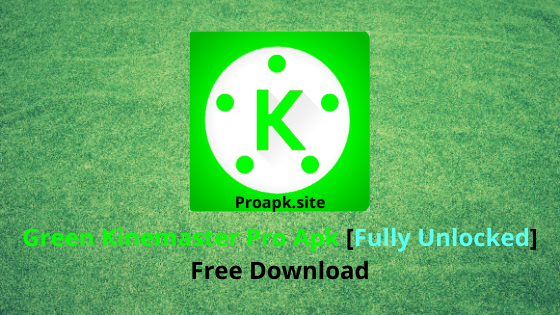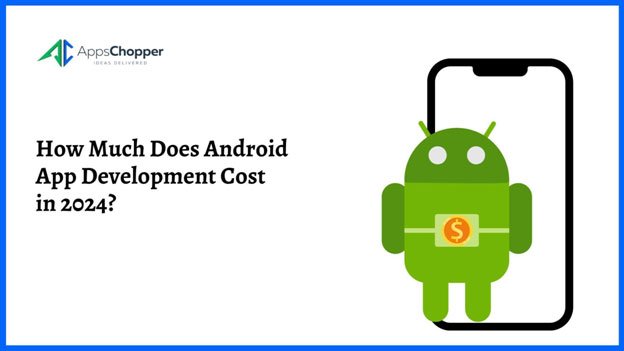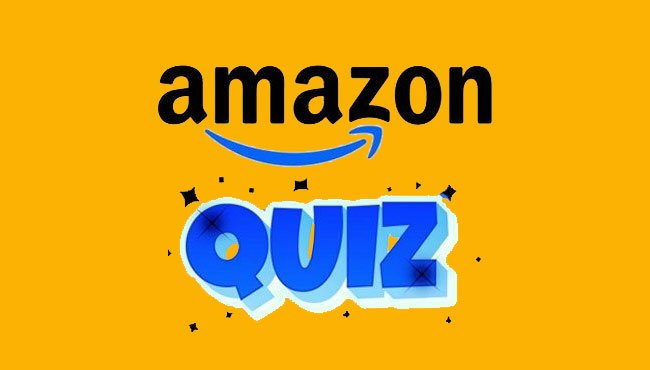Entering the dynamic and competitive landscape of the modern app market demands more than just the creation of a stellar product. Successful app promotion hinges on strategic planning and meticulous execution to ensure optimal visibility within your target audience.
The initial and critical step in this journey involves the meticulous optimization of your app for app stores, enhancing its discoverability. This encompasses the crafty creation of an attention-grabbing title and description, the incorporation of relevant keywords, and the thoughtful design of an enticing app icon.
Positive reviews are the lifeblood of app success, necessitating a dedicated focus on delivering an outstanding user experience and promptly addressing user feedback. Additionally, visually compelling screenshots and engaging videos should be deployed to effectively showcase your app’s key features and functionalities, leaving an indelible impression on potential users.
Leveraging the Power of Social Media Marketing
In a world where social media platforms wield unparalleled influence, integrating them into your app promotion strategy is not just advisable; it’s indispensable. Establishing a robust presence on platforms like Facebook, Twitter, Instagram, and LinkedIn involves tailoring your approach to harness each platform’s unique strengths.
Engage your audience with a multifaceted content strategy that includes visually appealing graphics, informative videos, and compelling user testimonials. Running targeted ads on these platforms can significantly broaden your reach, allowing you to tap into specific demographics with surgical precision.
Moreover, the dynamic nature of social media provides an excellent avenue for direct customer engagement, feedback, and support, fostering a sense of community around your app.
Harnessing the Influence of Marketing Influencers
In the era of influencer culture, collaborating with individuals who hold sway over your target audience can be a transformative strategy. Identifying influencers within your app’s niche and specific demographic requires a nuanced understanding of your user base.
Proactively reaching out to these influencers with proposals for collaboration, such as offering them early access to your app or exclusive features, can entice them to provide authentic reviews and testimonials.
The impact of influencer marketing extends beyond a mere promotional tactic; it adds a layer of credibility to your app, leveraging the trust these influencers have cultivated with their followers. You’ll soon realize why this is the best way to promote your new app and develop it so it is a true success.
The Impact of Content Marketing on App Promotion
Content marketing stands out as a robust and multifaceted tool in your app promotion arsenal. Creating valuable and relevant content that effectively showcases the utility and uniqueness of your app is the essence of this strategy. For those running a successful sugar dating app, content is a must.
Establishing a blog on your website provides a dedicated space to share in-depth articles, insightful tutorials, and compelling case studies related to your app’s functionalities. Incorporating strong SEO strategies into your content ensures enhanced visibility in search engine results, driving organic traffic to your app.
Furthermore, considering guest posting on industry blogs, participating in relevant forums, and creating shareable infographics can amplify your app’s exposure through diverse channels, contributing to a comprehensive content marketing strategy.
Strategic Incentives and Promotions to Encourage Downloads
Motivating potential users to download your app demands a strategic approach that goes beyond the inherent value of your product. Implementing well-thought-out promotions, discounts, or exclusive in-app features for a limited time creates a sense of urgency, prompting users to take immediate action.
Collaborating with other businesses for cross-promotions provides an opportunity to tap into their existing audience, extending your app’s reach.
Running contests or giveaways on social media platforms not only generates excitement but also boosts engagement and awareness. Loyalty programs and referral incentives establish a connection with your user base, encouraging them not only to continue using your app but also to recommend it to their networks.
The Ongoing Process of App Store Optimization (ASO)
App Store Optimization (ASO) isn’t a one-time task but an ongoing, dynamic process crucial for sustained success in the app market. Regularly reviewing and updating your app’s metadata, including keywords, is essential to adapting to changing trends and user behavior. Vigilance regarding your competitors and staying informed about industry updates ensures that your app remains relevant and competitive.
Testing different variations of your app’s description, screenshots, and other elements allows you to identify the most effective combination for attracting and retaining users.
ASO demands a continuous commitment to adaptability and a deep understanding of your target audience, ensuring that your app not only captures attention but also retains it amidst the ever-evolving app landscape.
Investing in Paid Advertising and User Acquisition Strategies
While organic methods are crucial, paid advertising can significantly accelerate your app’s visibility. Invest in targeted advertising campaigns through platforms like Google Ads, Facebook Ads, or in-app advertisements. Leverage data analytics to understand user behavior and optimize your advertising spend.
Additionally, employing user acquisition strategies such as partnerships with relevant apps or influencers can bring in new users.
Balancing paid advertising with organic efforts creates a holistic approach, maximizing your app’s exposure and attracting diverse user segments. This balance is relevant no matter the industry you’re trying to develop and you’ll see understand why investing in paid advertising is the best way of making your marketing campaign successful.
Engage with Your User Base through Feedback Loops
Establishing a strong feedback loop with your users is invaluable for app promotion. Encourage users to provide feedback within the app and actively respond to their comments and reviews. Implementing user-requested features not only enhances the user experience but also fosters loyalty.
Regularly update your app based on user input, demonstrating a commitment to improvement.
By engaging with your user base, you not only create a positive user experience but also cultivate a community around your app, turning satisfied users into brand advocates who will naturally promote your app through word of mouth.
Make sure your users know that you invested in your content ad video material in order to make their user experience the best they can have.
Diversify Your Presence with Cross-Platform Compatibility
Expanding your app’s reach involves ensuring compatibility across various platforms. While optimizing for app stores is vital, consider developing versions compatible with both iOS and Android platforms.
This broadens your potential user base and allows you to tap into diverse audiences. Additionally, explore opportunities for cross-platform promotions or collaborations to enhance visibility.
A cross-platform strategy ensures that your app remains accessible to a wide range of users, contributing to sustained growth and success.
The success of your app in the highly competitive digital marketplace hinges on the implementation of a comprehensive and multifaceted app promotion strategy.
This multifaceted approach encompasses a spectrum of activities, starting with the meticulous optimization of your app store presence—crafting an enticing title, employing strategic keywords, and ensuring visually appealing representations to captivate potential users.
The integration of social media into your promotional endeavors further widens your reach, providing a dynamic platform to engage with your audience, share compelling content, and establish a vibrant community around your app.
Collaboration with influencers injects credibility into your promotional efforts, as their endorsement brings an authentic seal of approval to your app, resonating with their followers and expanding your user base.
Simultaneously, the strategic creation of compelling content, whether through a dedicated blog, informative tutorials, or engaging case studies, solidifies your app’s value proposition. Offering time-sensitive promotions and discounts generates urgency, prompting users to act swiftly, while a steadfast commitment to App Store Optimization (ASO) ensures that your app remains discoverable amid the evolving app landscape.
Ways to Promote Your New App: Ultimate Marketing Strategies
Master the art of app promotion to achieve significant downloads and sustained user engagement in today’s competitive market.
Pre-Launch Strategies: Building Anticipation
Before your app even hits the app stores, laying a solid foundation through strategic pre-launch activities is crucial for generating buzz and attracting your initial user base.
1. Define Your Target Audience & Value Proposition
- Who is your app for? Deeply understand their demographics, pain points, interests, and online behavior. This knowledge is fundamental to crafting all your marketing messages effectively.
- What problem does your app solve? Clearly articulate the unique benefits and what truly sets your app apart from competitors. This is your Unique Selling Proposition (USP) – the core reason users will choose your app.
2. Create a Compelling App Landing Page/Website
- Central Hub: Your website serves as the primary online presence and information hub for your app. It validates your app’s legitimacy and provides a place for users to learn more.
- Key Elements: Include high-quality screenshots and engaging demo videos, concise yet powerful copy highlighting features and benefits, clear calls to action (CTAs) to download (once available), and direct links to the App Store and Google Play.
- SEO Optimization: Optimize your website content with relevant keywords (e.g., “best productivity app for students,” “innovative fitness tracker,” “puzzle game for mental agility”) to attract organic traffic from search engines like Google. This ensures potential users find you even outside of app stores.
3. Build a Buzz on Social Media
- Claim Handles: Secure your app’s name and consistent branding across all major social media platforms (Facebook, Instagram, TikTok, LinkedIn, Twitter/X, etc.) where your target audience spends their time.
- Teaser Campaigns: Share “behind-the-scenes” glimpses, sneak peeks of features, countdowns to launch, and short, engaging teaser videos to generate excitement and curiosity.
- Engage: Don’t just broadcast; actively interact with your audience through comments, direct messages, polls, and Q&A sessions to build a loyal community before launch.
4. Develop a Professional Press Kit
- Ready-Made Resource: Prepare a comprehensive press kit specifically designed for journalists, bloggers, and influencers.
- Essential Contents: This should include a compelling press release announcing your app, high-resolution app icons and screenshots, a captivating demo video, a brief but impactful overview of your app’s features and benefits, and clear contact information for media inquiries.
5. Conduct Thorough Beta Testing & Gather Feedback
- Refine Your App: Release a pre-launch version of your app to a select group of beta testers who represent your target audience.
- Improve User Experience: Systematically collect detailed feedback on bugs, overall usability, performance, and user satisfaction. Addressing these issues before launch ensures a polished, user-friendly product that minimizes negative initial reviews.
6. Email List Building
- Early Interest Capture: Implement clear calls to action on your landing page and social media to collect email addresses from interested individuals. Offer incentives like early access, exclusive content, or special launch notifications.
- Nurture Leads: Use email marketing to keep these early adopters updated on your app’s development progress, share valuable insights related to your niche, and build anticipation for the official launch date.
Post-Launch Strategies: Driving Downloads & Engagement
Once your app is live on the stores, the real work of sustained promotion begins. These strategies focus on increasing visibility, attracting new users, and keeping them engaged.
1. App Store Optimization (ASO) – Your App Store SEO
ASO is paramount for discoverability directly within the App Store (Apple) and Google Play Store. It’s the equivalent of SEO for your app listing.
- Optimize Elements:
- App Name/Title: Include primary keywords relevant to your app’s core function.
- Subtitles/Short Descriptions: Highlight key benefits and secondary keywords effectively.
- Long Descriptions: Provide detailed information, using keywords naturally and explaining value.
- Keywords Field (iOS): Utilize all available space for relevant search terms.
- App Icon: Design a distinctive, memorable, and high-quality icon that stands out.
- Screenshots & App Previews/Videos: Showcase your app’s best features, user interface, and overall experience through compelling visuals.
- Ratings & Reviews: Actively encourage positive reviews from satisfied users and consistently respond to all feedback, both positive and negative. App store ratings significantly influence ranking and user trust.
- Localization: Translate your app name, descriptions, keywords, and even screenshots for different geographic regions and languages to reach a wider, global audience.
2. Paid Advertising Campaigns
While organic growth is vital, paid advertising can provide an immediate boost in visibility and user acquisition.
- App Store Ads: Run targeted ads directly within the App Store (Apple Search Ads) and Google Play Store (Google App Campaigns) to ensure your app appears at the top of relevant search results.
- Social Media Ads: Leverage platforms like Facebook, Instagram, TikTok, and LinkedIn to target specific demographics, interests, and behaviors with highly engaging ad creatives (images, videos).
- Search Engine Ads (Google Ads): Promote your app install landing page or direct links to your app store listing through Google Search ads, targeting relevant user queries.
- Influencer Marketing: Collaborate strategically with influencers whose audience aligns perfectly with your target users. Offer them exclusive previews, provide tracking links, and consider performance-based rewards for effective promotion.
3. Content Marketing
Creating valuable and relevant content drives organic traffic, establishes authority, and educates potential users.
- Blog Posts: Consistently publish informative blog posts related to your app’s niche, addressing common problems or interests that your app solves. This not only attracts organic search traffic but also positions you as an industry authority.
- Video Content: Develop a variety of engaging video content – explainer videos, tutorials, user testimonials, and creative short-form videos – for platforms like YouTube, Instagram Reels, TikTok, and even your app store listings to demonstrate your app’s value and functionality.
- Infographics & Guides: Design visually appealing infographics and comprehensive guides that simplify complex concepts related to your app’s use case. These are highly shareable and effective for explaining features.
4. Public Relations (PR)
Securing media mentions and features can significantly boost your app’s credibility and reach.
- Media Outreach: Proactively pitch your app’s unique story, features, or impact to tech journalists, app review sites, and publications relevant to your niche.
- Guest Blogging: Write insightful guest posts for other popular blogs or websites in your industry, including strategic links back to your app’s website or store listing.
- Press Releases: Regularly issue professional press releases to relevant media outlets to announce major updates, significant new features, strategic partnerships, or notable milestones.
5. Referral & Loyalty Programs
Leverage your existing user base to drive organic growth through word-of-mouth marketing.
- Incentivize Sharing: Implement referral programs that offer tangible rewards (e.g., in-app currency, premium features, discounts, exclusive content) to both the referrer and the new user they bring in. Make sharing easy.
- Gamification: Integrate elements like badges, points, leaderboards, or daily challenges within your app to increase in-app engagement, retention, and encourage users to spend more time.
6. Community Engagement
Direct interaction with potential and existing users can foster a strong, loyal community around your app.
- Forums & Groups: Actively participate in online forums, Reddit communities, and Facebook groups relevant to your app’s niche. Provide valuable insights and, where appropriate and natural, subtly introduce your app as a solution.
- Online Q&A: Monitor and answer questions on platforms like Quora or industry-specific Q&A sites. Offer helpful, non-promotional information, and when genuinely relevant, mention your app as a practical solution.
7. Analytics & Continuous Improvement
Data-driven decision-making is essential for optimizing your app promotion efforts and ensuring long-term success.
- Track KPIs: Consistently monitor key performance indicators (KPIs) such such as total downloads, daily active users (DAU), monthly active users (MAU), user retention rate, conversion rates from listing to install, and app store ratings.
- A/B Testing: Continuously experiment with different app store creatives (icons, screenshots), ad copies, and marketing messages. A/B test these elements to see what resonates most effectively with your target audience and drives better performance.
- Regular Updates: Commitment to continuous improvement is key. Regularly update your app with new features, address bugs, and implement performance enhancements based on user feedback and emerging market trends. This not only improves user satisfaction but also signals to app stores that your app is actively maintained and valuable.



